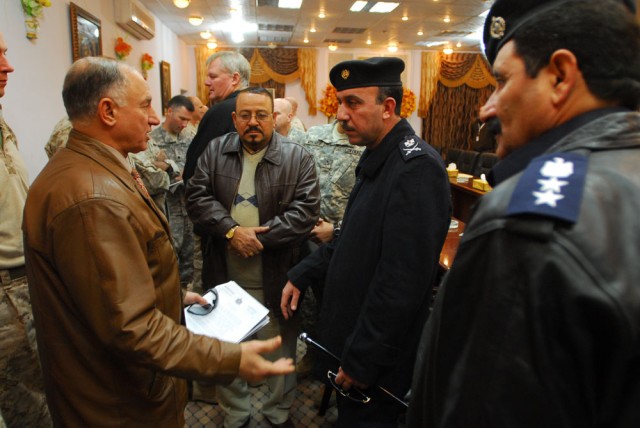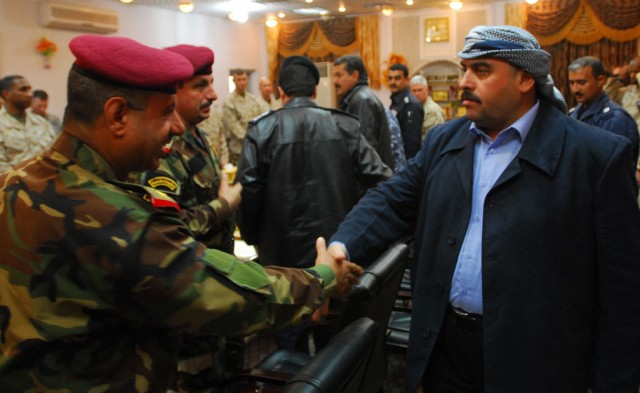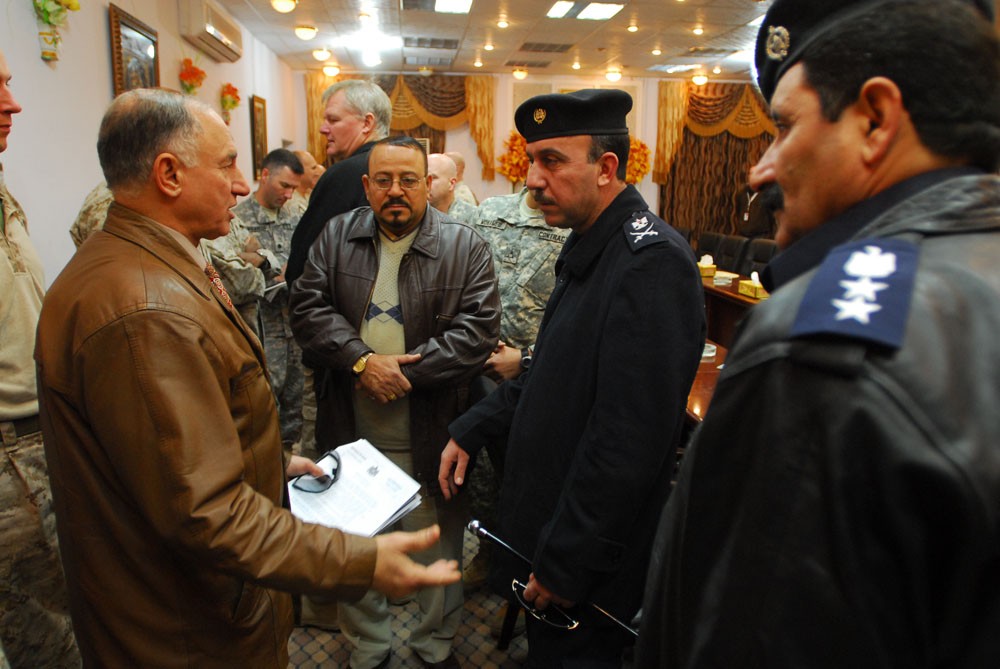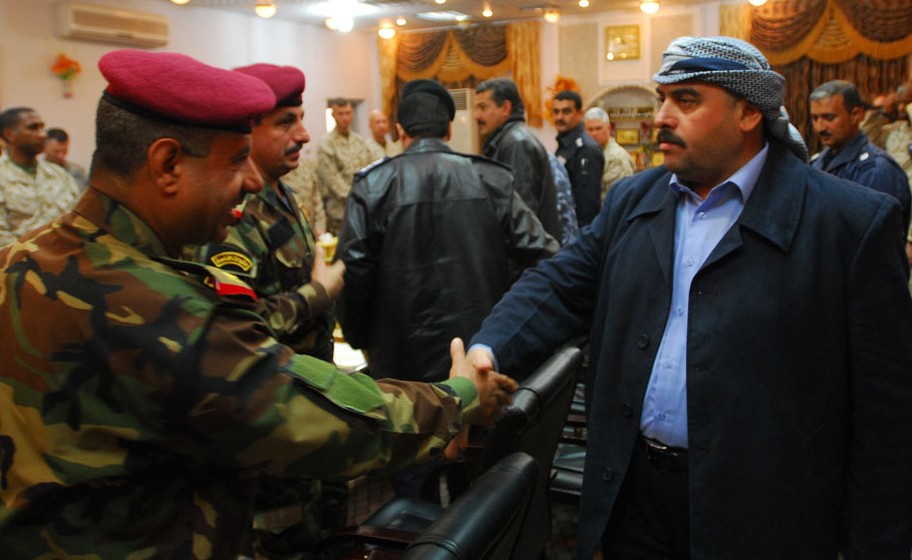BAGHDAD (Army News Service, Dec. 31, 2008) - Along with a new year, Iraq is ringing in an important step toward national reconciliation and sovereignty on Jan. 1 as the nation's government takes over control of the Sons of Iraq from Coalition forces in four provinces.
The turnover includes Diyala, one of the most diverse provinces, where al-Qaeda in Iraq once terrorized and intimidated local residents.
In all, 76 percent of the nation's SoI members will be under Iraqi government responsibility by New Year's Day.
"We are beyond the tipping point with the Sons of Iraq," said Lt. Col. Jeffrey Kulmayer, the chief of reconciliation and engagement for Multi-National Corps - Iraq.
"They have invested in the future of Iraq. And the Iraqi Government is offering them hope in the future. They're going to be part of that."
The transfer marks a dramatic turnaround in Diyala province in particular.
"Diyala is a small Iraq," said Iraqi Army Maj. Gen. Muzhir al-Mawla, vice chairman of the Iraqi Follow-Up Committee for National Reconciliation. Home to Kurds as well as Sunni and Shi'a Iraqis, the region is more varied than Baghdad, he sadi, where SoI members have already been successfully transferred to Iraqi control.
In 2007, the mostly Sunni area of Diyala, northeast of Baghdad, had been considered one of the most dangerous provinces in Iraq, and it lacked an infrastructure to support many basic services for its residents. But, as AQI's targeting of innocent men, women and children in areas like Diyala took its deadly toll on residents, concerned local citizens joined a movement called the "Awakening" and organized neighborhood watches to roll back terrorist gains in their communities.
The following year, the movement's members -- who came to be known as the Sons of Iraq -- joined forces with the Coalition to fight AQI, with spectacular results, officials said. The addition of more than 100,000 SoI members helped to thicken the security forces and enabled the improved security environment experienced today.
"They have been critical to finding caches, bringing down IEDs, keeping al-Qaeda out of the towns, because they know everybody," Kulmayer said. "They know who's who in their towns and villages."
Now, after helping bring greater stability to the region, 20,000 SoI members in Diyala, Babil, Wasit and Qadisiyah provinces will have opportunities to serve their country in new roles.
In early December, they began to register with the Iraqi government to receive their regular paychecks. As responsibility for the SoI transfers to the government on Jan. 1, the group's members will transition into a variety of meaningful jobs intended to secure the nation's future. About 20 percent are slated to join the Iraqi Army or Police; the rest will enter public or private employment in a variety of roles, from civil engineering to electrical maintenance to working in the government's multiple ministries.
"The goal of this program is to eventually hire these people into meaningful jobs," said Lt. Gen. Lloyd Austin III, commanding general of MNC-I. "While many of them are working in security positions right now, ultimately they'll transition and go into other meaningful jobs, and that's the goal."
The program has met with a number of challenges. Before working with the Coalition, many of the SoI actively resisted it. Some members worry that their previous activities might be held against them.
So far, though, the SoI and the government have interacted well, confirming that this is "the leading edge of reconciliation," according to Maj. Gen. Michael Ferriter, deputy commanding general of MNC-I.
In the past three months, more than half of the country's SoI have already been transferred smoothly to Iraqi control, including all the group's members in Baghdad. SoI registration in Anbar Province is nearly complete, in preparation for a Feb. 1 transfer to Iraqi control. Ninewa, Kirkuk and Salah Ah Din provinces are scheduled to transfer in early spring. Authorities said a rehearsal of the Diyala transfer on Dec. 23 went off without a hitch.
"Diyala is considered to be a very complex province, but in fact the registration of the SoI has gone very well," said Kulmayer, adding that nearly 9,000 SoI members would register with the government in the province. "We have a very large turnout there. It's exceeding the expectation of how many would come in and register."
"The Sons of Iraq feel as if they're being taken care of," Austin said. "They're apprehensive, but that's to be expected. This is new and building trust takes time."
Civil Service Corps projects continue to be the main focus of non-security job efforts, with more than 4,100 SoI currently enrolled in various apprentice programs. Iraqi-led jobs programs for the SoI, such as CSC and public works projects, remain in development. The government of Iraq is also looking at opening a number of job-training centers around the country to address the needs of unskilled SoI members.
"Those results have come about because of determined leadership," Austin said.
Ferriter echoed those comments, adding that, at the end of the day, all the parties were on the same page. "We have a common goal: We don't want the Sons of Iraq to turn to al-Qaeda," he said.
"The Coalition forces don't want that; the Iraqi Prime Minister doesn't want that. Together, we'll make this work."




Social Sharing